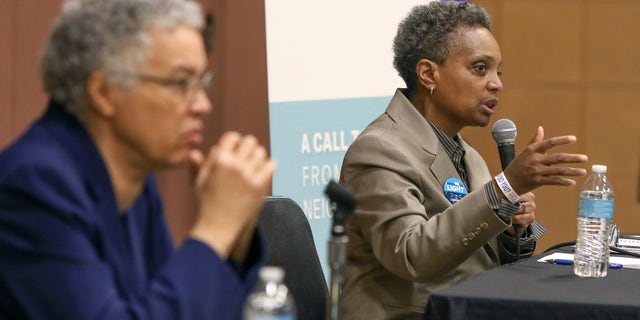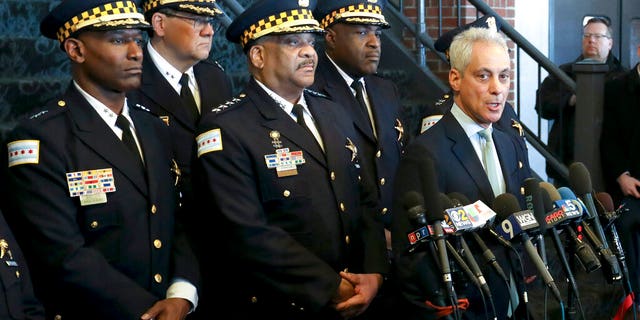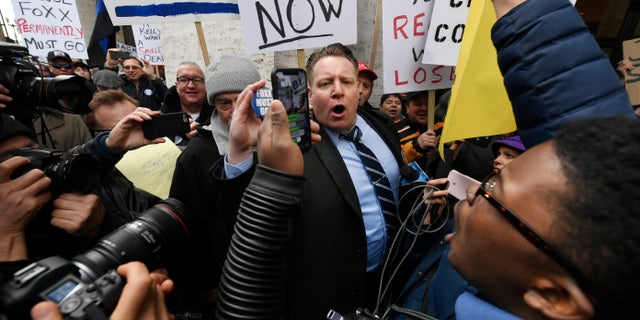Former Georgia gubernatorial candidate Stacey Abrams speaks
during the National Action Network Convention in New York City, April 3,
2019. (Associated Press)
Former Georgia gubernatorial candidate Stacey Abrams questioned the legitimacy of her 2018 loss during an event in New York City on Wednesday, saying she refuses to concede the race to Republican Gov. Brian Kemp, while accusing the GOP of stealing the election.
"Despite the final tally and the inauguration [of Gov. Brian Kemp] and the situation we find ourselves in, I do have a very affirmative statement to make: We won," she told the crowd at the annual convention of the Rev. Al Sharpton's National Action Network.
Abrams ran as a Democrat and would have been the first African-American woman governor in America had she won. She lost to Kemp by more than 54,000 votes, but has repeatedly refused to concede the outcome.
"Concession needs to say something is right and true and proper," Abrams said, according to the Washington Examiner. "You can't trick me into saying it was right."
During her campaign, Abrams was backed by big-name celebrities and prominent Democrats like Hillary Clinton and former President Barack Obama. The results were mired in controversy because Kemp, who was Georgia’s secretary of state at the time, oversaw the election.
Civil rights groups have accused Kemp of suppressing low-income people and minorities of their voting rights using the state's "exact match" law. The law requires election officials to flag any voter registration application if the identifying information doesn't match the voter's information in existing records.
A group backed by Abrams filed a federal lawsuit in January over the alleged voter suppression. Kemp has denied that he disenfranchised voters for his own benefit.
Abrams' name has been floated as a possible running mate for former Vice President Joe Biden, who is considering a 2020 Democratic White House bid. It has also been rumored that Abrams is considering her own 2020 presidential run.


























